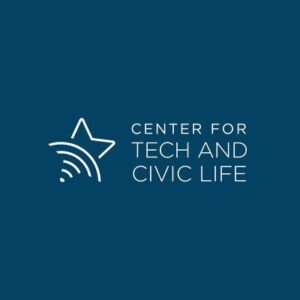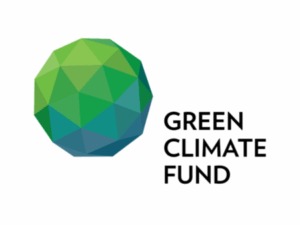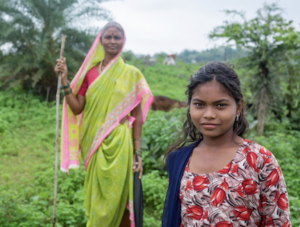Transform Schools helps improve learning outcomes for students in India, in partnership with state government systems.
Pankaj Sharma of Transform Schools spoke with Erica Edwards on April 12, 2023. Click here to read the full conversation with insights highlighted.
Erica Edwards: Could you please introduce yourself, your role, and your organization, and the problem you work to address?
Pankaj Sharma: My name is Pankaj Vinayak Sharma, and I lead Transform Schools. It’s an India-based organization, and we work to solve the problem of poor learning outcomes in secondary education, which leads to many children who have trudged and fought their way through the primary school system, and then struggled to pass through the secondary education system, and then drop out. Those are the kids that we bat for and support.
Erica Edwards: Can you describe the approach you take to improve educational outcomes in post-secondary school? What’s unique about it?
Pankaj Sharma: There are two core things that make our approach unique. One is that we have been able to successfully innovate, and come up with solutions that at a very low price point, in partnership with government systems, can improve learning outcomes for children. There has been a randomized controlled trial, a Nobel Prize winning organization called JPAL evaluated our programs, and it proved that the interventions add almost a year and a half of additional learning gains for children, in less than 50 hours of our work. That type of work is representative of the kind of excellence that we create in the Innovations Lab.
The second part, which is again unique, is that we take these innovations in partnership with governments, the state governments in India. We’ve got multiple states in India, and we get them to invest in scaling these through their existing schools, school teachers, using their own funding. And we’ve been able to hit a massive scale over a short period of four years. This December, we will complete four years in operation, and yet, our interventions have touched the lives of about nine million children. That’s because of the state partnership model that we have. That’s what makes this really unique.
Erica Edwards: What insights or teachable lessons can be taken from your works that others could use?
Pankaj Sharma: I think there are three core insights. The first is to be fearless. Be audacious about solving problems that others think are unsolvable, intractable, or very complicated. That’s the courage that you need to find, especially if the problem is important enough to solve. Everybody told us, “Don’t work in secondary, it’s too late for intervening on learning issues, in secondary schools.” And we said, “No, it’s actually very important for kids from income deprived families, poor marginal groups, to complete their secondary education. Because that’s what guarantees better jobs, better livelihood, better life for these young children.” We didn’t listen and I think that was one very important thing. We said, “No, no, we are going to solve this.”
The second one is really breaking down the problem, often as a fledgling organization, and picking up the parts where you have greater chances of success. If the success is more tangible for others to see, I think it is a smart thing to do. We chose academic learning outcomes. We didn’t look at metacognition, we didn’t look at executive function. We said, “Let’s work on academy learning outcomes because that’s the pain point for state governments. That’s the pain point for children. That’s the pain point for parents who have literally eked out everything that they have to put these kids through schools.” Choosing your battles very carefully, is what I would say.
The third is to be obsessive about evidence and data, because if you can’t prove it, if you don’t know where you’re going, or believe that any road will take you there, the funders, the partners won’t come on board. I think being obsessive about research and evidence – and it can even be human stories, not just quantitative data evidence. Really telling stories of change is super important. I think those are three lessons that I would share very, very happily as almost sort of cornerstones of success.
Erica Edwards: Do you have any key examples of that change that you’re speaking of, that come to mind?
Pankaj Sharma: About three years back we were getting a group of visitors from this really interesting organization called Leaders Quest. These were all leaders who were on a quest, figuring out their own leadership. As a part of the preparation, I went to one of the schools and I met a young girl who came from a 10-meter by 10-meter house, in a slum area on the outskirts of Bahraich, her town. Her name was Rosaline. And her father was basically sacrificing everything that he was earning to make sure that the two girls were able to study. To sort of build an environment which was conducive for studying. He had even built a little tin roofed room on the top of a tiny house, which was a study room for them.
Yet this girl was struggling because she hadn’t caught on, and she was left behind on what the school was covering. Our program allows kids to go back, literally, to grade three curriculum and catch up. And we do this really quickly. We make kids go through 3, 4, 5, 6, 7 curriculum to get them to grade level, which is Class 9 and Class 10, and is secondary school in India. Rosaline started to grow in confidence. Her language skills improved quite significantly, and that immediately changes the way you engage with other people, or teachers, with text. I followed her journey personally over the past three years, including during COVID lockdowns. What’s really amazing is that she started as a kid who possibly would have dropped out, who was really demotivated and thought it was very difficult going to the school and not being able to follow anything. Now she’s in college, she’s studying economics, she’s really good at math and languages. And I think that the value of education has suddenly dawned upon not just her, or her own family, but amongst other children in the school where they’ve seen somebody who was behind, catch up and excel. I think that’s the second chance that we are talking about giving young people, and that’s transformative. For me, Rosaline and these nine other million children that we’ve taken our offering to, they are that change that we are looking to create in India, and possibly elsewhere.
Erica Edwards: How do you measure success and what evidence is there that you’re making progress?
Pankaj Sharma: We measure success through continuously tracking our four core areas.
On a human, qualitative level, we get regular feedback from children that have gone through our programs. Since we work through governments and they deliver the program, we are sort of once removed from direct engagement. We make sure that our quality assurance processes speak to the end user continuously and don’t just rely on the intermediary, or the government department that we’re working with. Really hearing the children, hearing the educators directly. I think that’s one.
Second is tracking case studies, actively seeking formal feedback, qualitative case studies that are almost journalistic in some ways and help us really learn from what experiences people are sharing, and tracking those over time.
The third is tracking the learning gains, quantitative, measurable learning improvements. The way we do that is that we’ve bucketed these journeys for children saying, “Well, you’re neither ahead or behind, there are certain grades to which your learning journeys are aligned.” Keeping it as simple as that, “Are you closer to grade three? Are you closer to grade five? Are you closer to grade eight?” And making sure there’s no shame, it just denotes a journey for children, even if they’re in class nine or beyond. It just denotes where I am. It doesn’t define me. I can change that. And I think communicating that very clearly, but tracking it and sharing that openly with teachers and educators, and giving them the tools to address it through the learning program.
Fourth, since we work with governments, we get feedback from the governments and look at the quality of that partnership. Because they’re the primary investors in the program, not us. So taking that feedback very seriously, and being very responsive to it.
Erica Edwards: Every social change effort learns from failure along the way. Can you describe a mistake or failure that occurred in your work? And most importantly, what lesson did you learn from it that others could benefit from hearing about?
Pankaj Sharma: I think the simplest way of putting this lesson is, what got you here, won’t get you there. And the way we experienced this was when we went from being a single state organization to a multiple state organization, we saw our quality, our responsiveness, and our results dip significantly. We hadn’t accounted for the changes we needed to make, not just in our offering and our engagement, but also the nature of the organization and the level of delegation that we had to do, which was effectively training our own team members and building capacities. As a recognition of that, what we’ve started to do was to address that challenge, those failures of state governments pushing back, and being very upset about the lack of responsiveness.
We’ve started to identify the right type of professionals who understand that this is a marathon, it is a very painful, difficult one. And even if we, for example, pay well, it doesn’t take away the pain and the hard work, and the resource deficit environments that we work in. Also delegating authority and decision making while providing adequate safeguards and support to team members is the second thing that we’ve done. Third is really investing in review systems, quality assurance systems, team huddles where teams can come together and talk about challenges that they’re facing. Making sure that people can talk openly, and failing fast. If you talk about issues that you’re dealing with and you fail fast, it’s better than to let it simmer and not to talk about it, and fail 12 months down the lane when it’s too late to go back and do anything about it.
Erica Edwards: How are you catalyzing advanced system level change in your field?
Pankaj Sharma: When we look at system changes, we often think of this system which is out there. I think the way we’ve started to engage with systems, which at a level is very rudimentary but also very advanced, is recognizing that systems are made up of human beings. Unless you can shape their behaviors and make them far more rational, and based on evidence, and leveraging both the public policy, the systemic framework that is available and also the tools to act on any of the policy imperatives, you will not be able to sustain or even initiate, long-lasting change.
We’ve started to identify personas that we work with, analyze their motivations, demotivations, look at behaviors which are detrimental for children’s success, for a teacher’s effectiveness, for a head teacher’s management effectiveness, when we work with the school system. Then actively bringing behavioral inputs to reshape these behaviors amongst these individuals to bring about larger systemic change, and embed this change. Recognizing that the system isn’t this amorphous, distant, far, some mothership, but it is all of us. It is a living embodiment of all of us and our collective behaviors. I think that’s a big shift that we’ve made over the past year.
Erica Edwards: What do you think is most needed from other partners to advance system level change?
Pankaj Sharma: We speak so much about collaboration, and I do think that we speak about it much more than we actually do this. At times, as a fledgling not-for-profit, I’ve really benefited from the generosity, the inputs, even just mental and emotional support, provided by other potential collaborators, or even competitors. Folks who could be competitors who are very generous with ideas, time, things like codes, their own resource materials. I think building a very mature collaborative space is one of the most important things to focus on. We do the same for some of our other colleagues in the sector, in some ways sort of paying it forward for others, like the way it’s been done for us. Making that a core value within the sector is super important.
Erica Edwards: How do you see your work evolving over the next five years?
Pankaj Sharma: Oh, that is exciting. There is a moral burden that, as the co-founder and one of the team members at Transform, that we have. Every bit of evidence that we’ve seen about our work with young people shows that it can improve learning outcomes significantly. Now the moral burden is that we need to take this to as many children in India, and keep improving the intervention. How this is going to play out is that, from a cumulative number of nine million children, we intend to reach a position by 2030, where we want to work with 20 million children each year. That is only possible if you have partnerships, collaborative relationships, if you have funding available to unlock these system partnerships, their capital and their investment. And also to have the organizational systems that can withstand that level of growth. It’s not a gentle curve, it’s like a hockey stick growth that we are planning. But like I said, it’s a moral burden. We know this can improve learning gains. We know that with each year of additional learning gains, children earn better when they’re adults, they make better reproductive health choices, they make better life choices. Their children beat poverty. We know all of this. This is not new. I have not created this, this is known.
That’s the moral burden that we have, and we want to make sure that we achieve that by 2030, through collaborative work and the power of a very strong, rigorously tested intervention.
Erica Edwards: Is there anything that we didn’t cover that you’d like to add to this conversation?
Pankaj Sharma: I think when you look back at the system change, and you look back at how organizations work and collaborate, I think the thing everybody needs to do is remember it’s for a child that you’re doing this. I think in all the glib talk, in all the management speak, in all the fundings dilemmas that we are facing, we keep forgetting that this is about, at least for us, it’s about this young child. This person has immense potential, and we have the ability to unlock that potential. That’s what makes me jump out of the bed every morning. I’ve seen my own daughter grow, through her 19 years, as an artist who, as a young child, believed that she was an artist, to now being an artist who’s going to an art school. It’s all about believing in these journeys for young children and investing in them. We must remember that at every given moment.
Erica Edwards: Thank you so much for your insight and the work you do.
Click here to read the full conversation with insights highlighted.
Erica J. Edwards is a multimedia journalist based in NYC. She has worked at New York Public Radio, WTAE, WMUR, and the Mayor’s Office of Media and Entertainment (MOME). Edwards was a LEDE Fellow within the Solutions Journalism Network. She is deeply passionate about bringing solutions journalism to the forefront of the public’s news diet through social media.
* This interview has been edited and condensed.
Find other organizations working on social innovation in education.







